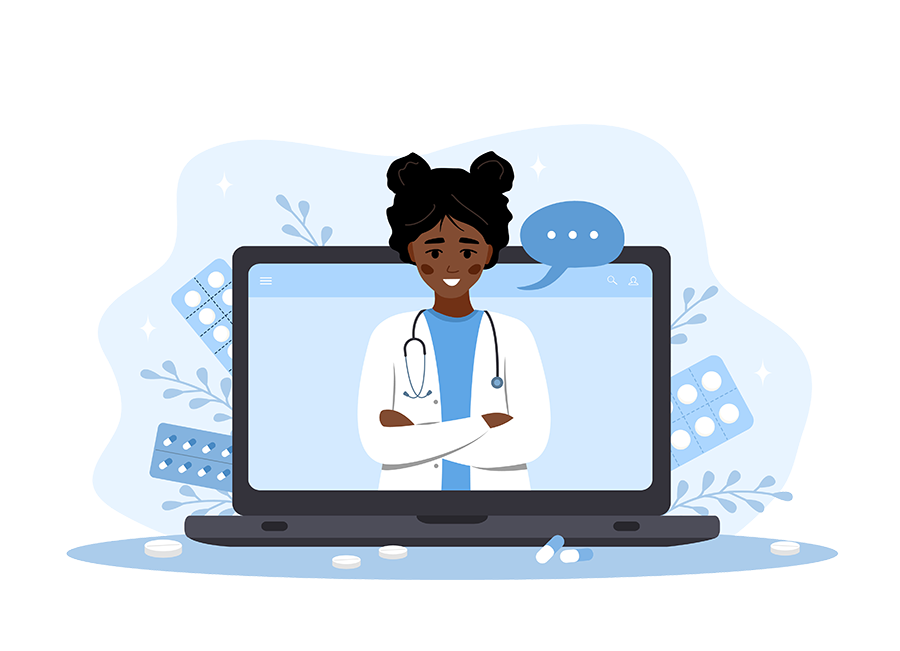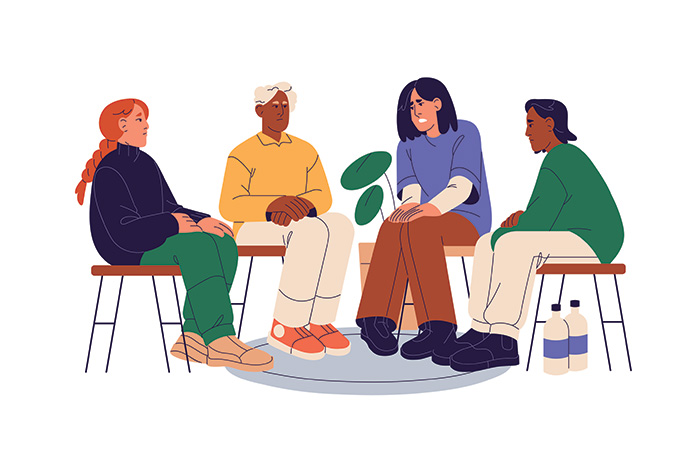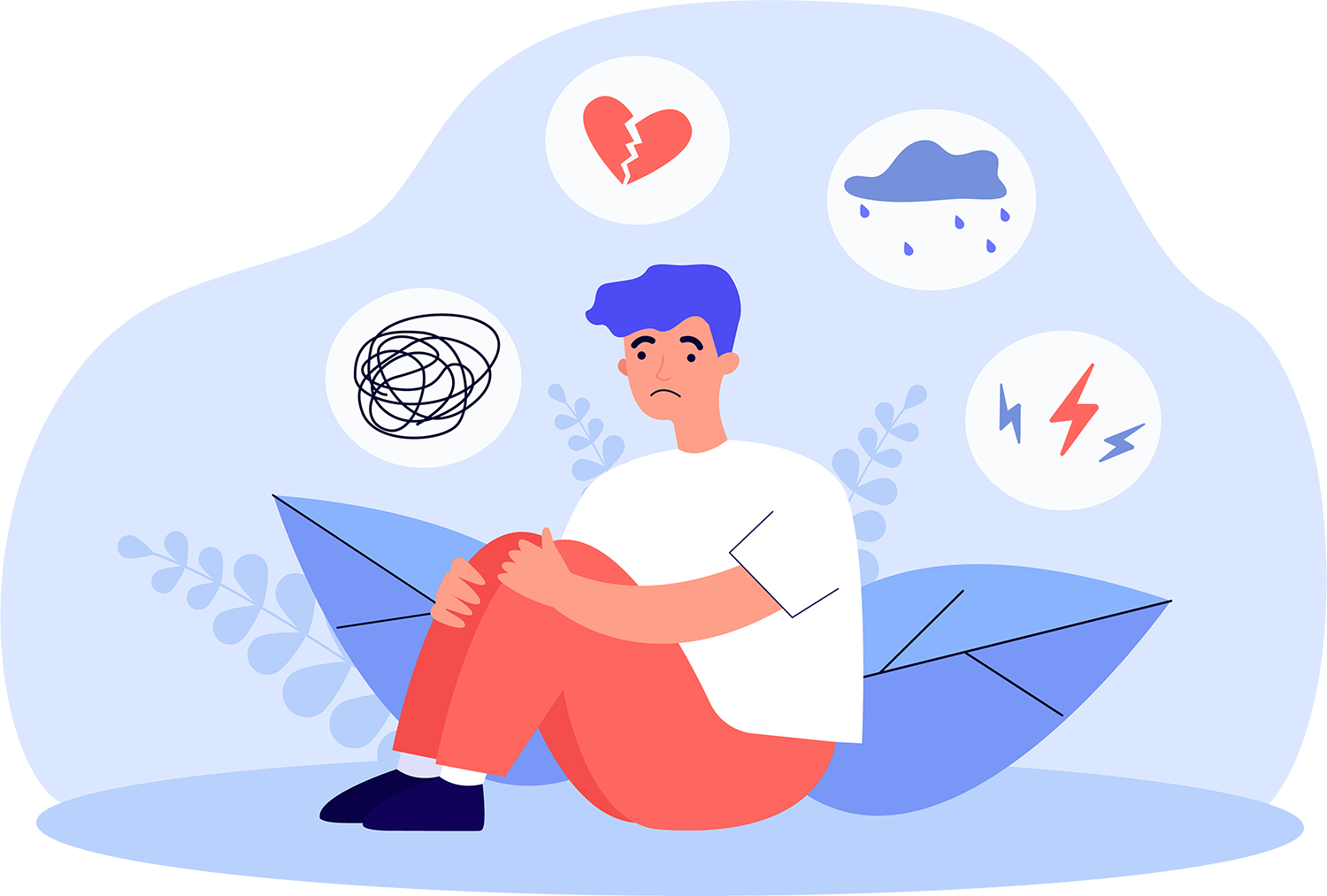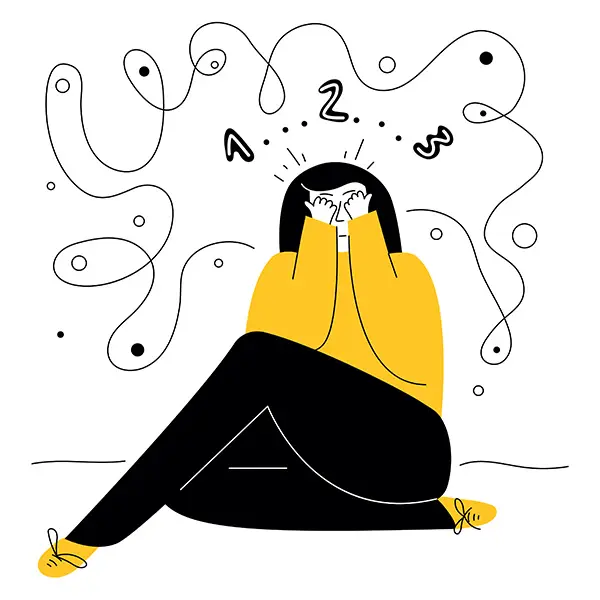Individuals with mental health disorders are more susceptible to developing substance use disorders, and vice versa. For example, someone with depression may turn to alcohol or drugs as a way to cope with their symptoms, leading to addiction. At the same time, the effects of substance use can trigger mental health issues or make existing mental conditions worse.
When someone has an addiction and a mental health problem, it is known as a co-occurring disorder. This is also called a dual diagnosis. This situation is more common than you might think.
The relationship between addictions and mental health is bi-directional and complex. It’s not always clear which condition came first. But we know they can fuel and perpetuate each other. This creates a vicious cycle that can be challenging to break without proper intervention and support.
A dual diagnosis refers to the co-existence of a substance use disorder and a mental health disorder in an individual. It can sometimes be hard to make a dual diagnosis because some symptoms of substance use disorder and certain mental health conditions can overlap.
But it’s important to get a proper diagnosis because treatment is most effective when both conditions are being addressed at the same time.
Co-occurring conditions can interact with each other and make symptoms worse. Treating one but not the other can undermine progress and increase the risk of relapse.
If you are struggling with addiction and mental health, you might consider a holistic treatment program over other rehab alternatives. Holistic programs focus on all important aspects of a person’s health – mental, physical and emotional.
At Eleanor Health, we provide treatment services for substance use disorder and co-occurring mental health conditions with a holistic approach.
The relationship between substance use disorders often looks like a “chicken or the egg” scenario. But there are three factors that can explain why people find themselves struggling with a dual diagnosis.
Opioid use disorder (OUD) is a brain disease characterized by a compulsive urge to use opioids, despite harmful consequences. Opioids include prescription painkillers and illicit drugs like heroin. Misusing opioids raises the likelihood of developing a mental health disorder, and it can make the symptoms of existing mental health disorders worse.
Common cases of dual diagnosis with OUD include:
Opioid painkillers are not the only prescription medication that can be highly addictive. Benzodiazepines (anti-anxiety medications) and stimulants (used to treat ADHD and other conditions), when misused, can contribute to the development or worsening of mental health disorders.
Individuals may initially be prescribed these medications for legitimate medical reasons, but over time, they can develop a dependence or addiction. This can lead to a range of mental health issues, including anxiety, depression, and cognitive impairment.
Alcohol use disorder (AUD) is a brain disease characterized by an impaired ability to stop or control alcohol use despite adverse social, occupational, or health consequences. Many people that struggle with mental health can drink alcohol safely. But many people can’t. If alcohol starts affecting your mental health, you might want to look into a dual diagnosis. Alcohol can make existing mental health disorders worse, or increase the likelihood of developing one.
Learn more about alcohol addiction and mental health:
Dual diagnosis treatment is a specialized approach designed to address both substance use disorders and mental health conditions simultaneously. This integrated approach recognizes the interconnected nature of these conditions and the need for comprehensive care.
At Eleanor Health, treatment for co-occurring disorders includes:
There are certain medications that can help people get off drugs or alcohol. These can often be used in combination with prescription medications used to tackle the symptoms of mental health conditions, like anxiety and depression.
Your clinical care team will create a treatment plan that works for you and your recovery needs. The FDA has cleared a list of medications for opioid use disorder (MOUD) and a list of medications for alcohol use disorder (MAUD).

Evidence-based therapies, such as cognitive-behavioral therapy (CBT), dialectical behavior therapy (DBT), and motivational interviewing (MI), can help individuals develop coping strategies, modify harmful thought patterns, and build resilience for long-term success. Working with a therapist helps deal with both SUDs and mental health challenges.
An important part of recovery is finding common ground with someone who’s been where you are, knows what it’s like and can help you get through it with real-life advice. Peer support can take many forms. At Eleanor Health, you work with a Peer Recovery Specialist that provides the community, accountability, and ongoing support needed throughout the recovery process.

Making positive lifestyle changes, such as improving nutrition, increasing physical activity, and developing healthy coping mechanisms, can support overall well-being and promote long-term recovery.
Each part of treatment supports holistic recovery. We understand getting better might feel too hard, especially if you are struggling with both mental health and addiction. We are here to help you make it to the other side.
Give us a call today to take the first step.
 Opioids and Depression: Understanding the Link Between Painkillers, Addiction, and Mental Health
Opioids and Depression: Understanding the Link Between Painkillers, Addiction, and Mental Health
 Why Do People Become Addicted to Alcohol and Drugs?
Why Do People Become Addicted to Alcohol and Drugs?
 Controlling Intrusive Thoughts in Addiction Recovery
Controlling Intrusive Thoughts in Addiction Recovery